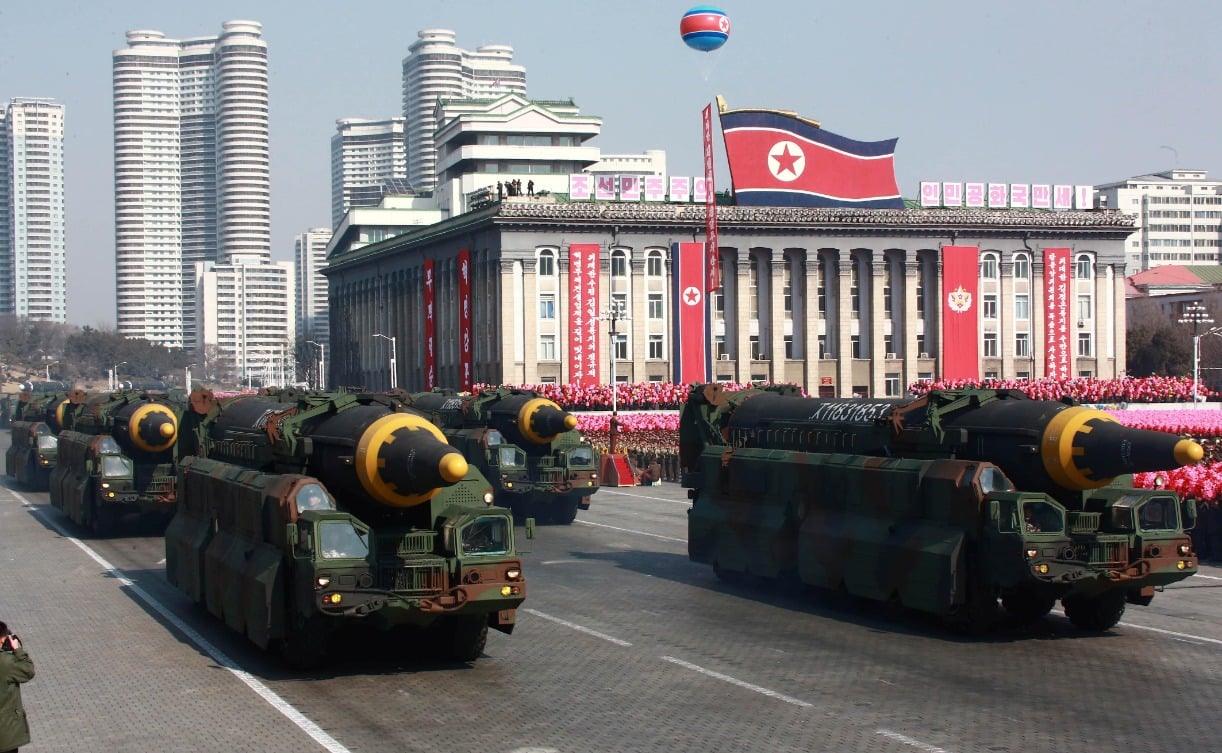Empathy Can Help Kamala Harris Stabilize the Korean Peninsula
Before diving into any new policy for the peninsula, I’d suggest that South Korean and U.S. leaders take a step back and reconsider the three pillars of the United Nations: peace and security; human rights; and development.
Let’s be real. The Republic of Korea and the United States both want lasting peace on the Korean Peninsula. And with consumers from their markets and beyond already feeling the pain from inflation and price hikes caused by supply chain disruptions in Ukraine and the Middle East, the last thing anyone needs is a geopolitical flare-up in Korea.
Before diving into any new policy for the peninsula, I’d suggest that South Korean and U.S. leaders take a step back and reconsider the three pillars of the United Nations: peace and security; human rights; and development.
These universally accepted values should guide the next moves toward a peaceful and prosperous future in Korea. When it comes to development, the Korea-U.S. business relationship could be a game-changer for peace and human rights in North Korea, something Vice President Kamala Harris could tap into if she takes office as president.

The policy of strategic patience toward Pyongyang and the broader Korean Peninsula taken by past U.S. administrations led to nowhere. Rather than patience, it resembled indifference. From a development perspective, just look at the rise and fall of the Kaesong Industrial Complex and the Mount Kumgang Tourist Region, prime case studies of how this hands-off approach stymied progress and hurt Korean small- and medium-sized businesses.
Meanwhile, former U.S. administrations’ meddling in Korea and Japan’s resolution on the issue of so-called comfort women is a glaring example of how women’s rights can be mishandled on the global diplomatic stage. It undermined the dignity of Korean women forced into sexual slavery by the Japanese Imperial Army. This mishandling even fueled a Korea-Japan trade dispute in 2019.
Thanks to the missteps of strategic indifference, which ignored both development and human rights, the first UN pillar—peace and security—still feels out of reach on the Korean Peninsula.
Business ventures, especially with prominent South Korean conglomerates like Samsung, Hyundai, SK, and LG, have deepened diplomatic ties between the Republic of Korea (ROK) and the United States.
South Korean chipmakers, battery firms, and automakers have spent billions of dollars to build their plants in the United States, which bolstered the sustainable alliance between the two nations. A Harris administration could take a page from this economic cooperation playbook to alleviate the tensions in the region.
Furthermore, a Harris administration could capitalize on South Korea's cultural sway and soft power tools to enhance relations with the Democratic People's Republic of Korea (DPRK). South Korea’s global cultural appeal, with its wide-reaching and intangible impact on people’s minds, could be central to peace talks among the three nations, moving beyond the usual economic and military strategies.
During the recent ABC News Presidential Debate, Harris remarked, “Clearly, I am not Joe Biden, and I am certainly not Donald Trump. And what I do offer is a new generation of leadership for our country.” This suggests that a Harris administration would be open to a fresh approach toward the DPRK and broader Korean Peninsula issues.
If elected, I expect her to lead with empathy and humanitarian values as the first female, African American, and Asian American president, demonstrating compassion for the starving North Korea people and toward the remaining nine comfort women survivors in South Korea, all now in their nineties.
When executed right, management researchers highlight that empathetic leadership can effectively navigate crises such as the current geopolitical tension on the Korean Peninsula. I also recommend that the Harris administration focus on economic cooperation via the ROK’s businesses and cultural influence to build the foundation for sustainable peace and prosperity.
About the Author
Jungho Suh is a leading expert in management and entrepreneurship, currently serving as an Assistant Professor at the George Washington University School of Business and as the Project Director of the GW Korean Management Institute. He is also an editor at two peer-reviewed journals, the Journal of the ICSB and SAGE Open. Dr. Suh specializes in evidence-based entrepreneurship, strategic human resource management, and travelers' behavioral science. His insights have been featured on CNN, ABC, NBC, and in The Washington Post, underscoring his influence in the field. Renowned for his ability to translate complex academic research into actionable strategies, Dr. Suh helps businesses and organizations drive sustainable growth and operational excellence.
Image Credit: Creative Commons and/or Shutterstock.


